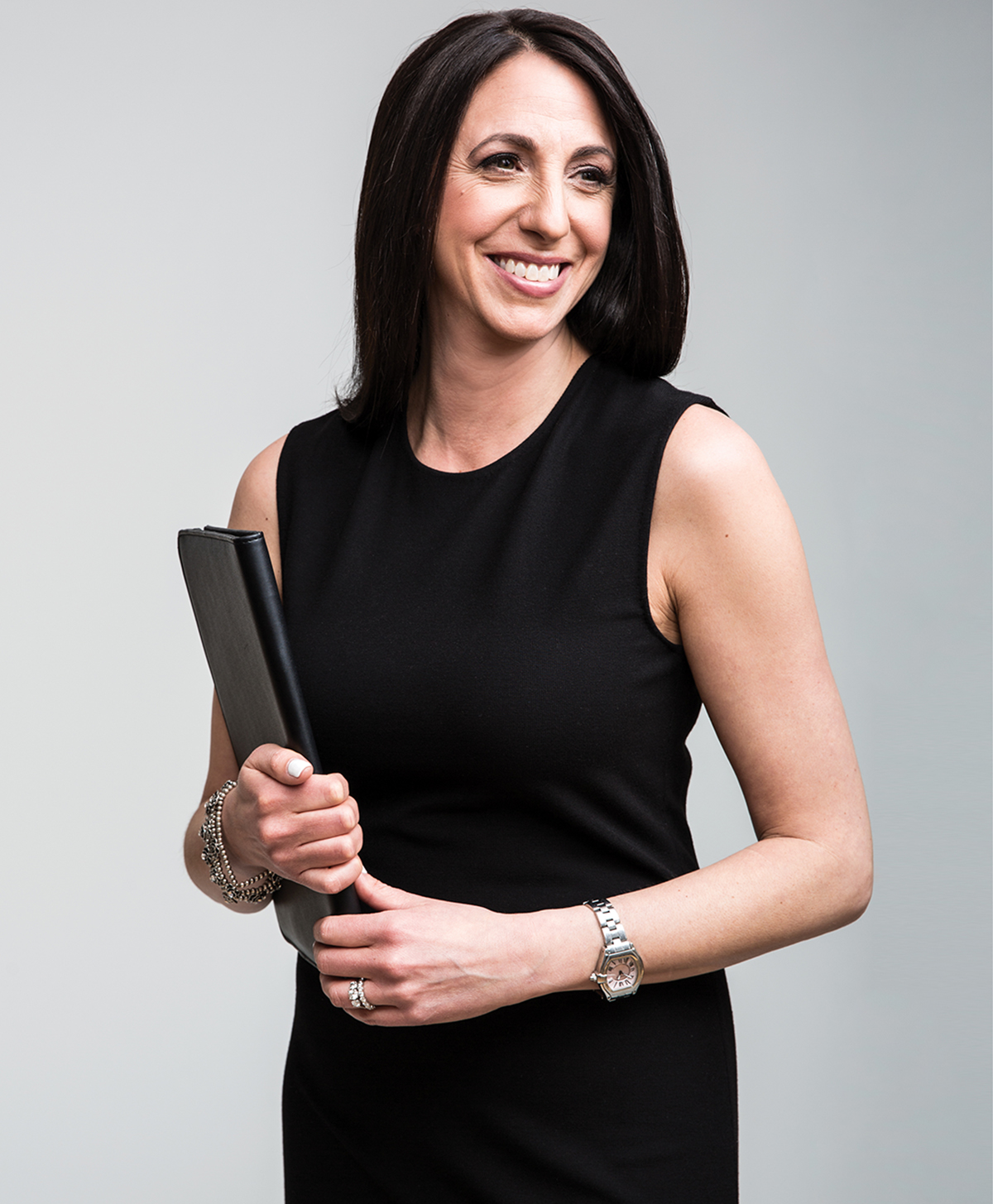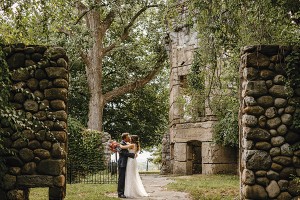The Poised Planner

Photograph by Trevor Reid | Hair by Heather Cohen/TEAM
On your big day, you should be focused on having fun and creating memories—not on how the napkins are being folded or who’s handing out the ceremony programs. That’s where Michelle Schaufeld comes in. She started her Northborough-based event-planning company, the Day Of, nine years ago after noticing a void in the market: You could either hire a full-service coordinator to handle every last detail of the planning process, or go it alone. Schaufeld and her team, meanwhile, focus mainly on making sure the ceremony and reception go off without a hitch. “I’m looking at all the details,” Schaufeld says. “The details in the middle of all the big, obvious ones are the ones that really make a difference.”
Why might someone choose a day-of planner over a full-service one?
There are two kinds of scenarios—someone may really just love the planning process and want to touch and feel every step of the way. And on the flip side, full-service event planning can be expensive. Day-of coordination is more affordable, and really attractive to brides who are looking for guidance, assurance, and peace of mind.
I didn’t have an event planner for my own wedding, and there was a photo that I really wanted and it didn’t happen. And had I had it on a list for a day-of coordinator, I guarantee it would’ve happened. But things slip through the cracks, because whose responsibility does that become? It’s not on anyone’s “list.”
When do you typically get involved in the planning process?
I’ve had people reach out to me three weeks before their wedding, and up to two years before their wedding. But on average, my clients are booking about six months before the wedding. Usually the couple have a date and a venue when they come to me.
What kinds of things does a day-of coordinator do in the months leading up to the big day?
We meet with our clients twice, and we’re available to them throughout the planning process if they want to bounce ideas off of us or need help finding a vendor. Our first meeting is at the venue, where we do a walk-through and review all of the details and plans up until that point. They go home with a list of things to think about and work on.
Three weeks before the wedding is the hand-off. It’s me asking them lots of questions, and them sharing information. Then I put a timeline together with all of the details of the day. How many rows of chairs are set up for how many seats for the ceremony? Do we need a microphone, and is it on a lapel or a stand?
Finally, we’re on-site that day. We really oversee and manage the process, and our clients don’t have to think about or worry about what’s going on behind the scenes.
Have there ever been times when those plans have gone awry?
The worst experience was a wedding that a rabbi didn’t show up for. We did everything right. We were in touch with the rabbi that week; my bride and groom were in touch with him even the day before, but at the end of the day he didn’t show up.
The guests were already seated, so we did a reverse cocktail hour and let them know what was happening. We ended up calling another rabbi, and he literally saved the day. He was so calm and amazing. I was waiting outside to welcome him and we’re walking in and he’s like, “Tell me the name of the bride and the groom. And the parents’ names are?” And then this wonderful, wonderful rabbi married an amazing couple. It was like the stars had aligned.
Is a church wedding more difficult to coordinate than a ceremony and reception in one location?
Weddings in two locations are always more challenging, because there are so many more logistics to manage. Churches are all laid out differently, so it’s very important that we understand the ins and outs of each. Some have areas for the bridal party to wait in while guests arrive; some have to wait in limos. Some clergy have certain ways they like to do things; others are very open. Typically, we have one coordinator with the musicians, and one with the bridal party, to be sure that the processional runs smoothly.
Do you recommend taking photos before the ceremony or during cocktail hour?
I always recommend taking photos before. My experience is the best example: When I got married, I didn’t see my husband before the ceremony, and then we missed all but 10 minutes of cocktail hour. Ninety percent of my clients see each other before the ceremony and, to my knowledge, not one of them has regretted that decision. The first look is so private, and so beautiful for the couple. They are able to take that moment in without the stress or nerves of doing that in front of all of their guests.
What’s the best part of the job?
I love the excitement and energy of being on-site; I love seeing how everything comes together. Aside from that, one of my favorite moments is when the bride is waiting to walk down the aisle—just the excitement, the nerves. When I fix the train and they go, it’s the best feeling. It’s the moment of the day.
508-523-3233, thedayofevents.com.
Tips
From scraped elbows to wardrobe malfunctions, a bride-to-be should be prepared for just about anything. Here, a peek inside Michelle Schaufeld’s wedding-day survival kit.
Fashion Tape: The number one use? Keeping clothing in place, most often a stubborn bra popping out of a dress.
Sewing Kit: Because you never know when a tux button—or a wedding-gown bustle—might come undone.
Tissues: With emotions running high, you’ll want to have a travel-size package tucked away in your clutch.
Bobby Pins: Best for taming unruly locks after snapping outdoor portraits or getting down on the dance floor.
Band-Aids: Keep a few on hand for blisters and minor boo-boos, lest you ruin your pristine white dress.
Scissors: A good pair of shears should quell the urge to rip the tags and loose threads off your delicate (and expensive) bridal wear.
For additional planning tips, check out more Wedding Experts »
Getting married? Start and end your wedding planning journey with Boston Weddings' guide to the best wedding vendors in the city.


